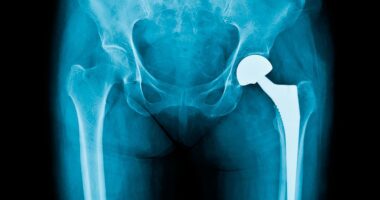Share this @internewscast.com
Non-stick coating chemicals have been widely used for many years to make cookware and bakeware more resistant to sticking food and easy to clean. But recent studies have raised concerns about the potential health risks associated with the use of non-stick coatings, particularly when it comes to cancer. In this blog article, we’ll look into these concerns as well as discuss other factors that can contribute to an increased risk of cancer and how they relate to non-stick coatings. We’ll also investigate ways to choose safe cookware and reduce exposure to harmful chemicals.
What is the non-stick coating?

There are many different types of non-stick coatings, but they all work by creating a barrier between the food and the cookware that prevents sticking. Non-stick coatings are usually made from polytetrafluoroethylene (PTFE), which is a synthetic fluoropolymer that has a variety of uses.
PTFE is known for being an exceptionally slippery material, which is why it’s often used in non-stick applications. It’s also heat resistant and chemically inert, meaning it won’t react with food or cooking utensils.
While PTFE is considered safe for most people, some studies have linked it to cancer in animals. The jury is still out on whether or not PTFE can cause cancer in humans, but if you’re concerned about the potential risks, there are plenty of other options available when it comes to non-stick cookware.
Also Read: 10 Things you should avoid if you are 40 and above
What is the chemical used in the non-stick coating?
There are many chemicals used in non-stick coatings, but the most common is perfluorooctanoic acid (PFOA). PFOA is a synthetic chemical that has been used in various industrial and commercial applications since the 1950s. It is a key ingredient in the production of fluoropolymers, which are widely used in non-stick coatings.
PFOA has been classified as a possible human carcinogen by the International Agency for Research on Cancer (IARC). Several studies have suggested that PFOA exposure may be associated with an increased risk of certain types of cancer, including kidney and testicular cancer. However, it is important to note that these studies are observational and do not necessarily prove that PFOA causes cancer. More research is needed to confirm these findings.
If you are concerned about your exposure to PFOA, there are some steps you can take to reduce your risk. First, avoid using products that contain non-stick coatings. If you must use them, make sure to follow the manufacturer’s instructions carefully to minimize your exposure. You can also ask your doctor about getting tested for PFOA if you think you may have been exposed.
Does the chemical used in non-stick coating cause cancer?

There is no definitive answer to this question as the research on the matter is inconclusive. Some studies have suggested that there is a link between exposure to the chemical used in non-stick coatings and cancer, while other studies have not found such a link.
It is worth noting that the chemical in question, perfluorooctanoic acid (PFOA), has been classified as a “possible human carcinogen” by the International Agency for Research on Cancer (IARC). However, it should be noted that the IARC classification does not mean that PFOA definitely causes cancer; rather, it means that there is limited evidence to suggest a potential link.
Given the lack of conclusive evidence, it is difficult to say definitively whether or not the chemical used in non-stick coatings does indeed cause cancer. However, if you are concerned about your exposure to PFOA, there are some steps you can take to reduce your risk. For example, you can choose to cook with ceramic or glass cookware instead of non-stick pots and pans.
How to avoid the risks of using products with non-stick coating?
There are a few things you can do to avoid the risks of using products with non-stick coating:
1. Use cooking utensils made of alternative materials, such as stainless steel or cast iron.
2. If you must use cookware with a non-stick coating, make sure to use it at low temperatures and for short periods of time.
3. Avoid using scratched or damaged cookware, as this can increase the release of harmful chemicals.
4. When buying new cookware, look for products that are PFOA-free and coated with ceramic or other safer materials.
How to avoid cancer-causing chemicals in non-stick cookware?
There are a few things you can do to avoid cancer-causing chemicals in non-stick cookware. First, make sure to only buy cookware that is certified as PFOA-free. Second, avoid using high heat when cooking with non-stick cookware. Third, be sure to properly ventilate your kitchen when cooking with non-stick cookware. Fourth, use spatulas and other utensils made of materials other than metal when cooking with non-stick cookware. Finally, consider alternatives to non-stick cookware altogether, such as ceramic or glass cookware.
Conclusion
In conclusion, it is clear that non-stick coating chemicals have the potential to be carcinogenic. However, there are regulations in place to make sure that these coatings are safe for consumer use and will not cause cancer. It is important to properly use and care for your non-stick-coated cookware and always follow the manufacturer’s instructions regarding cleaning and maintenance. By doing this, you can help ensure that you are taking all necessary steps to prevent any potentially harmful exposure from occurring.











